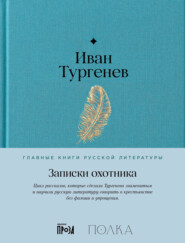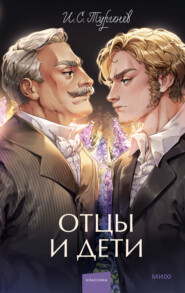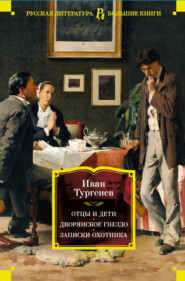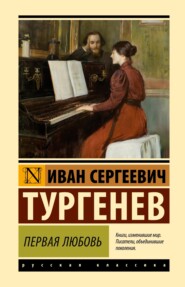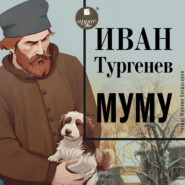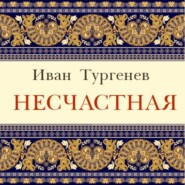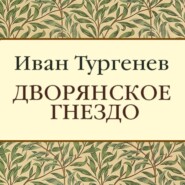По всем вопросам обращайтесь на: info@litportal.ru
(©) 2003-2024.
✖
Fathers and Sons
Настройки чтения
Размер шрифта
Высота строк
Поля
"Bravo, bravo!" cried Paul Petrovitch. "Listen, O Arkady – listen to the way in which the young men of the present day ought to express themselves! Surely our youth will now rally to your side? For once upon a time they had to go to school, since they did not like to be taken for dunces, and therefore worked at their studies; but now they have but to say: 'Everything in the world is rubbish,' and, behold! the trick is done. They consider that delightful – and naturally! In other words, the blockheads of former days are become the Nihilists of the present."
"Your self-sufficiency – I mean, your self-respect – is carrying you away," Bazarov remarked nonchalantly (as for Arkady, his eyes had flashed, and his whole form was quivering with indignation). "But our dispute has gone far enough. Let us end it. Whenever you may feel that you can point out to me a single institution in our family or our public life which does not call for complete and unsparing rejection, I shall be pleased to accept your view."
"Of institutions of that kind I could cite you millions," exclaimed Paul Petrovitch. "For example, take the village commune."
Bazarov's lips twisted themselves into a contemptuous smile.
"The village commune," said he, "is a subject which you would do better to discuss with your brother, since he is learning by experience the meaning of that commune, and of its circular guarantee, and of its enforced sobriety and other contrivances."
"Take the family, then – yes, take the family, since at least among the peasantry it is still a surviving institution."
"And that question, too, I should imagine were best not dissected by you in detail. But see here, Paul Petrovitch. Allow yourself a minimum of two days to think over these things (you will need quite that amount of time to do so); and cite to yourself in succession our various social conditions, and give them your best attention. Meanwhile Arkady and myself will go and – "
"Go and make sport of everything, I presume?"
"No, go and dissect frogs. Come, Arkady! Au revoir, gentlemen."
And the two friends departed. Left alone, the brothers looked at one another.
"So," at last said Paul Petrovitch, "you see the young men of the day – you see our successors!"
"Our successors – yes," re-echoed Nikolai Petrovitch despondently. Throughout the conversation he had been sitting simply on pins and needles; throughout it he had dared do no more than throw an occasional pained glance at Arkady. "My brother, there came to me just now a curious reminiscence. It was of a quarrel which once I had with my mother. During the contest she raised a great outcry, and refused to listen to a single word I said; until at length I told her that for her to understand me was impossible, seeing that she and I came of different generations. Of course this angered her yet more, but I thought to myself: 'What else could I do? The pill must have been a bitter one, but it was necessary that she should swallow it.' And now our turn is come; now is it for us to be told by our heirs that we come of a different generation from theirs, and must kindly swallow the pill."
"You are too magnanimous and retiring," expostulated Paul Petrovitch. "For my part, I feel sure that we are more in the right than these two youngsters, even though we may express ourselves in old-fashioned terms, and lack their daring self-sufficiency. Indeed, what a puffed-up crowd is the youth of to-day! Should you ask one of them whether he will take white wine or red, he will reply, in a bass voice, and with a face as though the whole universe were looking at him: 'Red is my customary rule.'"
"Should you like some more tea?" interrupted Thenichka, who had been peeping through the doorway, but had not dared to enter during the progress of the dispute.
"No," was Nikolai Petrovitch's reply as he rose to meet her. "So you can order the samovar to be removed."
Meanwhile, with a brief "Bon soir," Paul Petrovitch betook himself to his study.
XI
Half an hour later Nikolai Petrovitch sought his favourite arbour. Despondent thoughts were thronging through his brain, for the rift between himself and his son was only too evident. Also, he knew that that rift would widen from day to day. For nothing had he spent whole days, during those winters in St. Petersburg, in the perusal of modern works! For nothing had he listened to the young men's discourses! For nothing had he been delighted when he had been able to interpolate a word into their tempestuous debates!
"My brother says that we are more in the right than they," he reflected. "And certainly I too can say without vanity that I believe these young fellows to stand at a greater distance from the truth than ourselves. Yet also I believe that they have in them something which we lack – something which gives them an advantage over us. What is that something? Is it youth? No, it is not youth alone. Is it that there hovers about them less of the barin than hovers about ourselves? Possibly!"
Bending his head, he passed his hand over his face.
"Yet to reject poetry!" he muttered. "To fail to sympathise with art and nature!"
And he gazed around as though he were trying to understand how any one could be out of sympathy with the natural world. Evening was just closing in, and the sun sinking behind a small aspen copse which, situated half a verst from the garden, was trailing long shadows over the motionless fields. Along the narrow, dark track beside the copse a peasant on a white pony was trotting; and though the pair were overshadowed by the trees, the rider was as clearly visible, even to a patch on his shoulder, as the twinkling legs of his steed. Piercing the tangled aspens, the sun's beams were bathing the trunks in so brilliant a glow that trunks and beams were one bright mass, and only the foliage on the boughs above formed a dusky blur against the lighter tints of the flame-coloured sky. Overhead bats were whirling; the wind had sunk to rest; a few late-homing bees were buzzing somnolently, sluggishly amid the lilac blossoms; and a pillared swarm of gnats was dancing over a projecting bough.
"O God, how fair!" was Nikolai's involuntary thought as his lips breathed a favourite couplet.
Suddenly he remembered Arkady and Stoff und Kraft; and though he continued to sit where he was, he quoted poetry no more, but surrendered his mind wholly to the play of his lonely, irregular, mournful thoughts. At all times he was a man fond of dreaming; and to this tendency his life in the country had added confirmation. To think of what only a short while ago he had been dreaming as he waited for his son on the post-house verandah! For since that hour a change had come about, and in the vague relations between himself and his son there had dawned a more definite phase. Next, he saw before him his dead wife. Yet he saw her, not as she had appeared to him during the later years of her life – that is to say, as a kindly, thrifty châtelaine– but as a young girl slim of figure and innocently inquiring of eye. Yes, there flitted before his vision a picture only of neatly plaited tresses falling over a childish neck. And he thought of his first meeting with her when, as a student, he had encountered her on the staircase leading to his suite of rooms. He remembered how, having accidentally brushed against her, he had stopped to apologise, but had only succeeded in muttering "Pardon, monsieur"; where-upon she had bowed, and smiled, and fled as in sudden alarm – but only to turn, the next moment, at the bend of the staircase, to look swiftly back, and then, as swiftly, to blush, and assume a more demure demeanour. Ah, those first timid meetings, those half-spoken words, those bashful smiles, those alternate fits of rapture and despair, that courtship that was destined to be crowned with swooning joy! Whither was it all fled? True, she had become his wife, and had conferred upon him such happiness as falls to the lot of few men on earth; but ever the thought recurred to him, and recurred again: "Why could those days of sweetness not have lasted for ever, so that we might have lived a life which should never have known death?"
He made no attempt to co-ordinate his thoughts. The predominant feeling in his mind was that he would give worlds to be able to connect himself with those blessed days by something stronger than the mere power of memory. He wanted to feel his Maria near him once more, to scent her dear breath. A curious mood had him in its grip.
"Nikolai Petrovitch!" came the voice of Thenichka from a spot somewhere in the vicinity. "Where are you?"
As he heard the call, a feeling that was neither vexation nor shame passed over him. No comparison between his dead wife and Thenichka was possible, yet he gave a start, and felt a passing regret that Thenichka had seized that moment to seek him. For in some way did the sound of her voice bring back to him his grey hairs, his old age, all that constituted the present. So for an instant the enchanted world which he had just entered, and which he had just seen emerge from the misty waves of the past, quivered – then disappeared.
"I am here, Thenichka," he called. "Please go away. I will come presently."
"Another reminder that I am a barin," he reflected.
Thenichka retired, and suddenly he became aware of the fact that since the moment when he had sunk into a reverie nightfall had come. Yes, all around him there lay a motionless obscurity, with, gleaming amid it, as a small, pale blur, Thenichka's face. Rising, he started to return to the house, but his unstrung nerves could not calm themselves, and, glancing now at the ground, now towards the heavens where there swarmed myriads of twinkling stars, he fell to pacing the garden. He continued this pacing until he was almost worn out; for still did the vague, despondent, insistent sense of agitation refuse to leave his breast. Could Bazarov have divined his thoughts, how the Nihilist would have laughed! And even Arkady would have condemned him. For from the eyes of Nikolai Petrovitch – from the eyes of a man of forty-four who was the proprietor of an estate and a household – there were welling slow, uncalled-for tears. This was a hundred times worse than the 'cello-playing!
And still he continued his pacing, for he could not make up his mind to enter the peaceful, inviting retreat which beckoned to him so cheerfully with its lighted windows, and to leave the darkness of the garden, to forego the touch of fresh air upon his face, to throw off his present mood of sadness and emotion.
At a turn in the path he encountered Paul Petrovitch.
"What is the matter with you?" Paul inquired. "You are looking as white as a ghost. Are you ill? Why not go to bed?"
Nikolai Petrovitch explained to him in a few words his frame of mind – then moved towards the house. Paul Petrovitch sauntered down towards the other end of the garden, and ever and anon, as he did so, indulged in wrapt contemplation of the heavens. Yet, save for the reflection of the starlight, there was nothing to be seen in his dark, handsome eyes; for he had not been born a Romanticist, and his drily fastidious, passionate, Frenchified, misanthropic soul was incapable of castle-building.
"I tell you what," Bazarov said to Arkady the same night. "A splendid idea has come into my head. You know that to-day your father said that a certain eminent relation had sent him an invitation which he had no intention of accepting. Well, how would it be if you and I were to accept it, seeing that you too have been included in the honour? The weather has turned beautiful, and we might drive over and look at the town, and thus, incidentally, secure a few days' uninterrupted talk together."
"Should you then return here?"
"No. I should go on to my father's. You see, he lives thirty versts away only, and it is a long time since last I saw either him or my mother. Moreover, the old folk deserve to be humoured a little, seeing that they have been very good to me – especially my father – and that I am their only son."
"And shall you stay long?"
"No. Staying in that place is dull work."
"Then pay us a second visit on your way back?"
"I will if possible. We will go, then, eh?"
"At your pleasure," Arkady replied with a show of indifference. But, as a matter of fact, he was delighted with Bazarov's proposal; and only the thought that he must keep up his "Nihilism" prevented him from manifesting his feelings.
So, the next day, the pair set out for the town of – ; while with one consent the youth of Marino broke into lamentations over their going, and Duniasha even went so far as to weep. Only their elders breathed more freely.
XII
The town of – , whither our friends now proceeded, lay under the dominion of one of those young, progressive, despotic provincial governors who afflict Russia in an unending sequence. As early as the first year of his rule this particular potentate had succeeded in quarrelling, not only with the President of the Provincial Council (who was a retired staff officer, a horse breeder, and an agriculturist), but also with his whole gubernatorial staff of tchinovniks: with the result that at the time of our story the commotion therefrom had attained a pitch which had just necessitated the sending down of a commissary empowered to hold an investigation. The Government's choice for this purpose had fallen upon Matvei Ilyitch Koliazin, the son of the Koliazin who had once acted as guardian to the brothers Kirsanov, and a man of the younger school – that is to say, a man who, though a little over forty, still aimed at attaining the dignity of a statesman, and having a breast covered with stars (including at least one of a foreign minor order), and who, also like the Governor whom he had come to examine, was accounted a Progressive, and held a high opinion of himself. Yet never did Matvei allow his boundless vanity to prevent him from affecting a stereotyped air of simplicity and good humour, or from listening indulgently to anything that might be said to him, or from cultivating so pleasant a laugh that everywhere he contrived to pass for "not a bad sort of a fellow." True, he could on important occasions (if I may quote the trite saying) "make dust fly" ("Energy is indispensable for a State worker," was a frequent saw of his – "L'énergie est la première qualité d'un homme d'état"); yet almost invariably did he end by being set down as a fool, while tchinovniks of more experience rode roughshod over him. Amongst other things, he had a custom of expressing a great respect for Guizot,[15 - François Pierre Guillaume Guizot (1787-1874), the great French minister, ambassador, littérateur, and educationalist.] and also of striving to convince every one that he (Koliazin) was not one of "your men of routine, your retired bureaucrats," but, rather, a man who noted "every new and more important phenomenon of our social life." In fact, such phrases he had at his finger ends, and also he studied (though with a sort of careless pomposity only) the development of contemporary literature. Lastly, it not seldom befell that, on meeting a street procession of students, he would, though maturer of years than the majority of its members, add himself to its ranks. In short, only his circumstances and his epoch caused Matvei Ilyitch in any way to differ from those officials of the Alexandrine period who, before setting out to attend a reception at Madame Svietchin's[16 - Madame Svietchin (1782-1857), wife of the Russian General Svietchin. For more than forty years she maintained a famous salon.] (then resident in St. Petersburg), would read a few pages of Condillac's[17 - Etienne Bonnot de Mably de Condillac (1715-1780), a French philosopher who based knowledge solely upon the physical senses.] works. Yet, though an adroit courtier, Matvei was a mere glittering fraud, since, save that he knew how to hold his own against all comers (though, certainly, that is a great achievement in life), he was, in all matters of State, a complete stranger to common sense.
On the present occasion he welcomed Arkady with all the bonhomie, all the jocosity, of an "enlightened" bigwig. Nevertheless his face fell a little when he learned that the other relatives whom he had invited had preferred remaining in the country. "Your father always was a queer fish," he remarked as he parted the tails of a velvet "cutaway." And, having said this, he turned to a young tchinovnik in a tightly buttoned uniform, and asked him irritably what he wanted; at which onslaught the young tchinovnik (whose lips looked as though a confirmed habit of keeping their own counsel had gummed them permanently together) straightened himself with a sharp, apprehensive look at his superior. But, once Matvei had effected this "settling" of his subordinate, the great man paid the little one no further attention.
In passing, I may observe that to most of our bigwigs is this species of "settling" very dear, and that many are the expedients resorted to for its achievement. Particularly is the following method "quite a favourite," as the English say – in other words, much in request. Suddenly a given bigwig will cease to be able to grasp with his intelligence even the simplest sentence, and assume an air of abysmal density. For example, he will inquire what the day of the week may be, and be told (with great and stammering deference) that the day is, say, Friday.
"What?" will roar the bigwig with an air of being forced to strain his ears to the utmost. "Eh? what do you say?"
"I-It is F-Friday, your E-E-Excellency."
"Eh, what? Friday? What mean you by Friday?"
"Your self-sufficiency – I mean, your self-respect – is carrying you away," Bazarov remarked nonchalantly (as for Arkady, his eyes had flashed, and his whole form was quivering with indignation). "But our dispute has gone far enough. Let us end it. Whenever you may feel that you can point out to me a single institution in our family or our public life which does not call for complete and unsparing rejection, I shall be pleased to accept your view."
"Of institutions of that kind I could cite you millions," exclaimed Paul Petrovitch. "For example, take the village commune."
Bazarov's lips twisted themselves into a contemptuous smile.
"The village commune," said he, "is a subject which you would do better to discuss with your brother, since he is learning by experience the meaning of that commune, and of its circular guarantee, and of its enforced sobriety and other contrivances."
"Take the family, then – yes, take the family, since at least among the peasantry it is still a surviving institution."
"And that question, too, I should imagine were best not dissected by you in detail. But see here, Paul Petrovitch. Allow yourself a minimum of two days to think over these things (you will need quite that amount of time to do so); and cite to yourself in succession our various social conditions, and give them your best attention. Meanwhile Arkady and myself will go and – "
"Go and make sport of everything, I presume?"
"No, go and dissect frogs. Come, Arkady! Au revoir, gentlemen."
And the two friends departed. Left alone, the brothers looked at one another.
"So," at last said Paul Petrovitch, "you see the young men of the day – you see our successors!"
"Our successors – yes," re-echoed Nikolai Petrovitch despondently. Throughout the conversation he had been sitting simply on pins and needles; throughout it he had dared do no more than throw an occasional pained glance at Arkady. "My brother, there came to me just now a curious reminiscence. It was of a quarrel which once I had with my mother. During the contest she raised a great outcry, and refused to listen to a single word I said; until at length I told her that for her to understand me was impossible, seeing that she and I came of different generations. Of course this angered her yet more, but I thought to myself: 'What else could I do? The pill must have been a bitter one, but it was necessary that she should swallow it.' And now our turn is come; now is it for us to be told by our heirs that we come of a different generation from theirs, and must kindly swallow the pill."
"You are too magnanimous and retiring," expostulated Paul Petrovitch. "For my part, I feel sure that we are more in the right than these two youngsters, even though we may express ourselves in old-fashioned terms, and lack their daring self-sufficiency. Indeed, what a puffed-up crowd is the youth of to-day! Should you ask one of them whether he will take white wine or red, he will reply, in a bass voice, and with a face as though the whole universe were looking at him: 'Red is my customary rule.'"
"Should you like some more tea?" interrupted Thenichka, who had been peeping through the doorway, but had not dared to enter during the progress of the dispute.
"No," was Nikolai Petrovitch's reply as he rose to meet her. "So you can order the samovar to be removed."
Meanwhile, with a brief "Bon soir," Paul Petrovitch betook himself to his study.
XI
Half an hour later Nikolai Petrovitch sought his favourite arbour. Despondent thoughts were thronging through his brain, for the rift between himself and his son was only too evident. Also, he knew that that rift would widen from day to day. For nothing had he spent whole days, during those winters in St. Petersburg, in the perusal of modern works! For nothing had he listened to the young men's discourses! For nothing had he been delighted when he had been able to interpolate a word into their tempestuous debates!
"My brother says that we are more in the right than they," he reflected. "And certainly I too can say without vanity that I believe these young fellows to stand at a greater distance from the truth than ourselves. Yet also I believe that they have in them something which we lack – something which gives them an advantage over us. What is that something? Is it youth? No, it is not youth alone. Is it that there hovers about them less of the barin than hovers about ourselves? Possibly!"
Bending his head, he passed his hand over his face.
"Yet to reject poetry!" he muttered. "To fail to sympathise with art and nature!"
And he gazed around as though he were trying to understand how any one could be out of sympathy with the natural world. Evening was just closing in, and the sun sinking behind a small aspen copse which, situated half a verst from the garden, was trailing long shadows over the motionless fields. Along the narrow, dark track beside the copse a peasant on a white pony was trotting; and though the pair were overshadowed by the trees, the rider was as clearly visible, even to a patch on his shoulder, as the twinkling legs of his steed. Piercing the tangled aspens, the sun's beams were bathing the trunks in so brilliant a glow that trunks and beams were one bright mass, and only the foliage on the boughs above formed a dusky blur against the lighter tints of the flame-coloured sky. Overhead bats were whirling; the wind had sunk to rest; a few late-homing bees were buzzing somnolently, sluggishly amid the lilac blossoms; and a pillared swarm of gnats was dancing over a projecting bough.
"O God, how fair!" was Nikolai's involuntary thought as his lips breathed a favourite couplet.
Suddenly he remembered Arkady and Stoff und Kraft; and though he continued to sit where he was, he quoted poetry no more, but surrendered his mind wholly to the play of his lonely, irregular, mournful thoughts. At all times he was a man fond of dreaming; and to this tendency his life in the country had added confirmation. To think of what only a short while ago he had been dreaming as he waited for his son on the post-house verandah! For since that hour a change had come about, and in the vague relations between himself and his son there had dawned a more definite phase. Next, he saw before him his dead wife. Yet he saw her, not as she had appeared to him during the later years of her life – that is to say, as a kindly, thrifty châtelaine– but as a young girl slim of figure and innocently inquiring of eye. Yes, there flitted before his vision a picture only of neatly plaited tresses falling over a childish neck. And he thought of his first meeting with her when, as a student, he had encountered her on the staircase leading to his suite of rooms. He remembered how, having accidentally brushed against her, he had stopped to apologise, but had only succeeded in muttering "Pardon, monsieur"; where-upon she had bowed, and smiled, and fled as in sudden alarm – but only to turn, the next moment, at the bend of the staircase, to look swiftly back, and then, as swiftly, to blush, and assume a more demure demeanour. Ah, those first timid meetings, those half-spoken words, those bashful smiles, those alternate fits of rapture and despair, that courtship that was destined to be crowned with swooning joy! Whither was it all fled? True, she had become his wife, and had conferred upon him such happiness as falls to the lot of few men on earth; but ever the thought recurred to him, and recurred again: "Why could those days of sweetness not have lasted for ever, so that we might have lived a life which should never have known death?"
He made no attempt to co-ordinate his thoughts. The predominant feeling in his mind was that he would give worlds to be able to connect himself with those blessed days by something stronger than the mere power of memory. He wanted to feel his Maria near him once more, to scent her dear breath. A curious mood had him in its grip.
"Nikolai Petrovitch!" came the voice of Thenichka from a spot somewhere in the vicinity. "Where are you?"
As he heard the call, a feeling that was neither vexation nor shame passed over him. No comparison between his dead wife and Thenichka was possible, yet he gave a start, and felt a passing regret that Thenichka had seized that moment to seek him. For in some way did the sound of her voice bring back to him his grey hairs, his old age, all that constituted the present. So for an instant the enchanted world which he had just entered, and which he had just seen emerge from the misty waves of the past, quivered – then disappeared.
"I am here, Thenichka," he called. "Please go away. I will come presently."
"Another reminder that I am a barin," he reflected.
Thenichka retired, and suddenly he became aware of the fact that since the moment when he had sunk into a reverie nightfall had come. Yes, all around him there lay a motionless obscurity, with, gleaming amid it, as a small, pale blur, Thenichka's face. Rising, he started to return to the house, but his unstrung nerves could not calm themselves, and, glancing now at the ground, now towards the heavens where there swarmed myriads of twinkling stars, he fell to pacing the garden. He continued this pacing until he was almost worn out; for still did the vague, despondent, insistent sense of agitation refuse to leave his breast. Could Bazarov have divined his thoughts, how the Nihilist would have laughed! And even Arkady would have condemned him. For from the eyes of Nikolai Petrovitch – from the eyes of a man of forty-four who was the proprietor of an estate and a household – there were welling slow, uncalled-for tears. This was a hundred times worse than the 'cello-playing!
And still he continued his pacing, for he could not make up his mind to enter the peaceful, inviting retreat which beckoned to him so cheerfully with its lighted windows, and to leave the darkness of the garden, to forego the touch of fresh air upon his face, to throw off his present mood of sadness and emotion.
At a turn in the path he encountered Paul Petrovitch.
"What is the matter with you?" Paul inquired. "You are looking as white as a ghost. Are you ill? Why not go to bed?"
Nikolai Petrovitch explained to him in a few words his frame of mind – then moved towards the house. Paul Petrovitch sauntered down towards the other end of the garden, and ever and anon, as he did so, indulged in wrapt contemplation of the heavens. Yet, save for the reflection of the starlight, there was nothing to be seen in his dark, handsome eyes; for he had not been born a Romanticist, and his drily fastidious, passionate, Frenchified, misanthropic soul was incapable of castle-building.
"I tell you what," Bazarov said to Arkady the same night. "A splendid idea has come into my head. You know that to-day your father said that a certain eminent relation had sent him an invitation which he had no intention of accepting. Well, how would it be if you and I were to accept it, seeing that you too have been included in the honour? The weather has turned beautiful, and we might drive over and look at the town, and thus, incidentally, secure a few days' uninterrupted talk together."
"Should you then return here?"
"No. I should go on to my father's. You see, he lives thirty versts away only, and it is a long time since last I saw either him or my mother. Moreover, the old folk deserve to be humoured a little, seeing that they have been very good to me – especially my father – and that I am their only son."
"And shall you stay long?"
"No. Staying in that place is dull work."
"Then pay us a second visit on your way back?"
"I will if possible. We will go, then, eh?"
"At your pleasure," Arkady replied with a show of indifference. But, as a matter of fact, he was delighted with Bazarov's proposal; and only the thought that he must keep up his "Nihilism" prevented him from manifesting his feelings.
So, the next day, the pair set out for the town of – ; while with one consent the youth of Marino broke into lamentations over their going, and Duniasha even went so far as to weep. Only their elders breathed more freely.
XII
The town of – , whither our friends now proceeded, lay under the dominion of one of those young, progressive, despotic provincial governors who afflict Russia in an unending sequence. As early as the first year of his rule this particular potentate had succeeded in quarrelling, not only with the President of the Provincial Council (who was a retired staff officer, a horse breeder, and an agriculturist), but also with his whole gubernatorial staff of tchinovniks: with the result that at the time of our story the commotion therefrom had attained a pitch which had just necessitated the sending down of a commissary empowered to hold an investigation. The Government's choice for this purpose had fallen upon Matvei Ilyitch Koliazin, the son of the Koliazin who had once acted as guardian to the brothers Kirsanov, and a man of the younger school – that is to say, a man who, though a little over forty, still aimed at attaining the dignity of a statesman, and having a breast covered with stars (including at least one of a foreign minor order), and who, also like the Governor whom he had come to examine, was accounted a Progressive, and held a high opinion of himself. Yet never did Matvei allow his boundless vanity to prevent him from affecting a stereotyped air of simplicity and good humour, or from listening indulgently to anything that might be said to him, or from cultivating so pleasant a laugh that everywhere he contrived to pass for "not a bad sort of a fellow." True, he could on important occasions (if I may quote the trite saying) "make dust fly" ("Energy is indispensable for a State worker," was a frequent saw of his – "L'énergie est la première qualité d'un homme d'état"); yet almost invariably did he end by being set down as a fool, while tchinovniks of more experience rode roughshod over him. Amongst other things, he had a custom of expressing a great respect for Guizot,[15 - François Pierre Guillaume Guizot (1787-1874), the great French minister, ambassador, littérateur, and educationalist.] and also of striving to convince every one that he (Koliazin) was not one of "your men of routine, your retired bureaucrats," but, rather, a man who noted "every new and more important phenomenon of our social life." In fact, such phrases he had at his finger ends, and also he studied (though with a sort of careless pomposity only) the development of contemporary literature. Lastly, it not seldom befell that, on meeting a street procession of students, he would, though maturer of years than the majority of its members, add himself to its ranks. In short, only his circumstances and his epoch caused Matvei Ilyitch in any way to differ from those officials of the Alexandrine period who, before setting out to attend a reception at Madame Svietchin's[16 - Madame Svietchin (1782-1857), wife of the Russian General Svietchin. For more than forty years she maintained a famous salon.] (then resident in St. Petersburg), would read a few pages of Condillac's[17 - Etienne Bonnot de Mably de Condillac (1715-1780), a French philosopher who based knowledge solely upon the physical senses.] works. Yet, though an adroit courtier, Matvei was a mere glittering fraud, since, save that he knew how to hold his own against all comers (though, certainly, that is a great achievement in life), he was, in all matters of State, a complete stranger to common sense.
On the present occasion he welcomed Arkady with all the bonhomie, all the jocosity, of an "enlightened" bigwig. Nevertheless his face fell a little when he learned that the other relatives whom he had invited had preferred remaining in the country. "Your father always was a queer fish," he remarked as he parted the tails of a velvet "cutaway." And, having said this, he turned to a young tchinovnik in a tightly buttoned uniform, and asked him irritably what he wanted; at which onslaught the young tchinovnik (whose lips looked as though a confirmed habit of keeping their own counsel had gummed them permanently together) straightened himself with a sharp, apprehensive look at his superior. But, once Matvei had effected this "settling" of his subordinate, the great man paid the little one no further attention.
In passing, I may observe that to most of our bigwigs is this species of "settling" very dear, and that many are the expedients resorted to for its achievement. Particularly is the following method "quite a favourite," as the English say – in other words, much in request. Suddenly a given bigwig will cease to be able to grasp with his intelligence even the simplest sentence, and assume an air of abysmal density. For example, he will inquire what the day of the week may be, and be told (with great and stammering deference) that the day is, say, Friday.
"What?" will roar the bigwig with an air of being forced to strain his ears to the utmost. "Eh? what do you say?"
"I-It is F-Friday, your E-E-Excellency."
"Eh, what? Friday? What mean you by Friday?"






